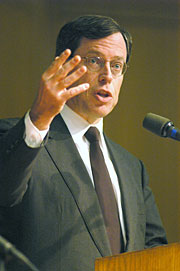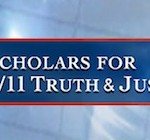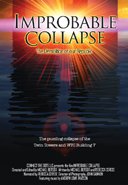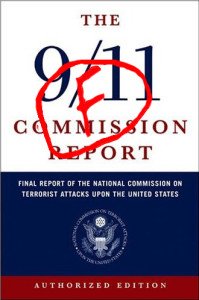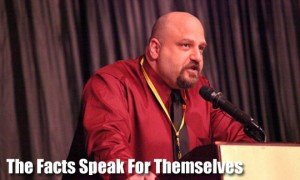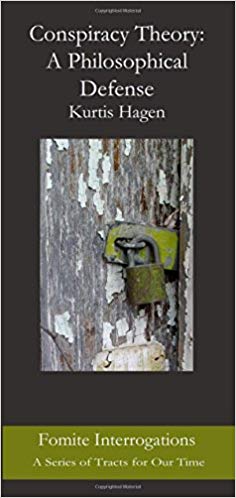
Conspiracy Theory: A Philosophical Defense
(A booklet for general audiences)
SUMMARY: The phrase “conspiracy theory” is often used as a pejorative, especially by people who take themselves to be sophisticated—such as scholars, government officials, and TV news personalities—even though they will generally admit that some conspiracy theories have turned out to be true. Their dismissiveness stems, in significant measure, from the assumption that conspiracy theories imply implausibly large and malevolent conspiracies. However, the considerations offered in this booklet suggest: (1) conspiracy theories need not, and often do not, posit malevolence or implausible motivations, (2) alleged conspirators holding high office in Western countries should not be regarded as above suspicion, and (3) the scope of a (possibly well-motivated) cover-up may reasonably be expected to be considerably larger than the scope of the associated (possibly appalling) underlying conspiracy. The third finding suggests that conspiracy theories that are generally regarded as implausibly large based on the size of what may seem to be a cover-up (much of which may not be conspiratorial) may not be implausibly large after all. All this suggests that dismissing conspiracy theories because they are presumed to entail implausibly large and malevolent conspiracy theories is a mistake. Rather, each theory ought to be judged on its own particular merits, focusing on the most plausible version.
(Please note that the block quotations in the Kindle edition are not indented, so the reader needs to be careful to notice when I’m quoting. It is just not visually obvious. The paperback edition turned out to be much better in that respect.)
I’ve also recently published 2 peer-reviewed articles responding to social scientists’ prejudicial treatment of conspiracy theorists. The first one is open-access.
(1) “Conspiracy Theories and Monological Belief Systems.” (open access)
Argumenta 6 (May 2018): 303-326.
(Journal of the Italian Society for Analytic Philosophy, special issue on the ethics and epistemology of conspiracy theories.)
ABSTRACT: Recent scholarship has claimed to show that conspiracy theorists are prone to simultaneously believe mutually contradictory conspiracy theories, as well as believe entirely made up conspiracy theories. The authors of those studies suggest that this supports the notion that conspiracy theories operate within “monological belief systems”, in which conspiracy theorists find support for conspiratorial beliefs in other conspiratorial beliefs, or in related generalizations, rather than in evidence directly relevant to the conspiracy in question. In this article, I argue that all of that is either wrong or at least misleading.
Other articles in this special issue (all open access) on conspiracy theories are here.
(2) “Conspiracy Theories and the Paranoid Style: Do Conspiracy Theories Posit Implausibly Vast and Evil Conspiracies?”
Social Epistemology 32.1 (2018): 24-40.
ABSTRACT: In the social science literature, conspiracy theories are commonly characterized as theories positing a vast network of evil and preternaturally effective conspirators, and they are often treated, either explicitly or implicitly, as dubious on this basis. This characterization is based on Richard Hofstadter’s famous account of ‘the paranoid style’. However, many significant conspiracy theories do not have any of the relevant qualities. Thus, the social science literature provides a distorted account of the general category ‘conspiracy theory’, conflating it with a subset of that category that encourages unfairly negative evaluations of conspiracy theories. Generally, when evaluating theories, one should focus on the most plausible versions; the merit of a theory is independent of the existence of less plausible versions of it. By ignoring this and glossing over important distinctions, many academics, especially in the social sciences, have misclassified many conspiracy theories and in doing so have contributed to an epistemically unfair depiction of them. Further, even theories that genuinely fit the description of ‘the paranoid style’ cannot be completely dismissed on that basis. All conspiracy theories ought to be judged on the totality of their individual merits.
(This article is not open access. However, other than the critique of specific social scientists—showing that they have in fact mischaracterized conspiracy theories—the basic argument regarding the plausibility of conspiracy theories is also found, in a more succinct form, in the booklet Conspiracy Theory: A Philosophical Defense, mentioned above, which also has additional detail.)
Finally, I’ve posted a short critique of a group of social scientists:
“What Are They Really Up To? Activist Social Scientists Backpedal on Conspiracy Theory Agenda.” (open access)
Social Epistemology Review and Reply Collective 6.3 (2017): 89- 95.
EXCERPT: In a joint statement published in Le Monde, a group of social scientists called for more research on conspiracy theorists in order to more effectively “fight” the “disease” of conspiracy theorizing (see Basham and Dentith 2016, 17). In response, a number of scholars, including myself, signed an open letter criticizing this agenda (Basham and Dentith 2016). In response to us, the authors of the Le Monde statement (minus Karen Douglass) published a sprawling rebuttal entitled, “‘They’ Respond” (Dieguez et al. 2016). Matthew Dentith and Martin Orr have already offered their response in turn (2017), as has Basham (2017). I will here add my own. … To keep this short, I will focus on just three issues: (1) They misrepresent their own previously stated intentions. (2) They misrepresent our critique of those intentions. (3) They fail completely in their attempt to show that, regarding the inappropriate pathologizing of conspiracy theorists, we are as guilty as they are. In restricting myself to these three issues I by no means wish to imply that the rest of their response was unproblematic.


